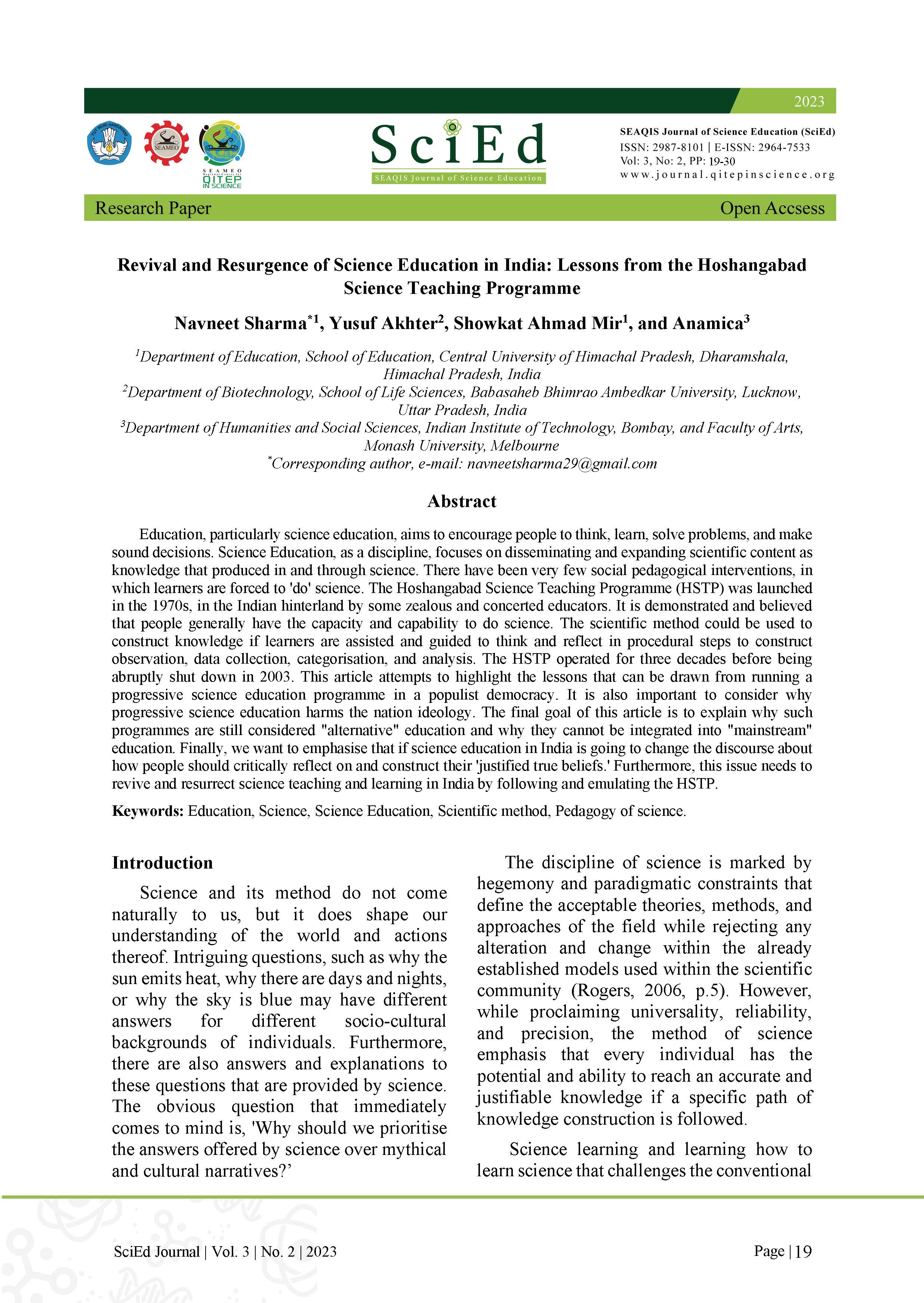Revival and Resurgence of Science Education in India: Lessons from the Hoshangabad Science Teaching Programme
DOI:
https://doi.org/10.58249/sjse.v3i02.98Keywords:
education, pedagogy of science, science, science education, scientific methodAbstract
Education, particularly science education, aims to encourage people to think, learn, solve problems, and make sound decisions. Science Education, as a discipline, focuses on disseminating and expanding scientific content as knowledge that produced in and through science. There have been very few social pedagogical interventions, in which learners are forced to 'do' science. The Hoshangabad Science Teaching Programme (HSTP) was launched in the 1970s, in the Indian hinterland by some zealous and concerted educators. It is demonstrated and believed that people generally have the capacity and capability to do science. The scientific method could be used to construct knowledge if learners are assisted and guided to think and reflect in procedural steps to construct observation, data collection, categorisation, and analysis. The HSTP operated for three decades before being abruptly shut down in 2003. This article attempts to highlight the lessons that can be drawn from running a progressive science education programme in a populist democracy. It is also important to consider why progressive science education harms the nation ideology. The final goal of this article is to explain why such programmes are still considered "alternative" education and why they cannot be integrated into "mainstream" education. Finally, we want to emphasise that if science education in India is going to change the discourse about how people should critically reflect on and construct their 'justified true beliefs.' Furthermore, this issue needs to revive and resurrect science teaching and learning in India by following and emulating the HSTP.

Downloads
Published
Issue
Section
Citation Check
License
Copyright (c) 2023 SEAQIS Journal of Science Education

This work is licensed under a Creative Commons Attribution 4.0 International License.

This work is licensed under a Creative Commons Attribution 4.0 International License.










